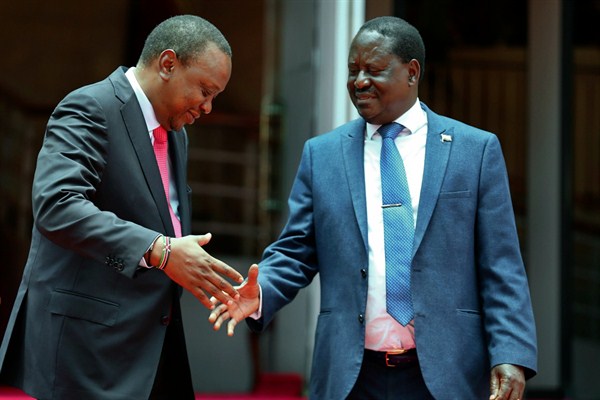Throughout Kenya’s latest election crisis, there was little love lost between the country’s two political archrivals. Raila Odinga, the opposition standard-bearer who lost last year’s bitter presidential race, accused the incumbent, Uhuru Kenyatta, of presiding over an “electoral dictatorship.” Kenyatta, meanwhile, implied that Odinga, in calling for a boycott of their runoff contest in October, was trying to deprive Kenyans of their right to vote.
Last week, however, the tenor of the exchanges between the two men, whose rivalry extends a family feud that can be traced back to the early days of Kenya’s independence, changed completely. After meeting for secret talks aimed at forging a rapprochement, they issued a joint statement committing to “a process of discussing what ails us and what creates division amongst us.” Appearing outside Harambee House, the president’s office in Nairobi, they shook hands for the cameras and called each other “brothers.”
Human rights and pro-democracy activists celebrated the news. The standoff had precipitated a worrying crackdown on opposition politicians and the media, especially after Odinga staged a shadow inauguration in late January and proclaimed himself “the people’s president.” Security forces have been accused of killing dozens of people in the election’s aftermath and also engaging in widespread sexual violence. But the men’s pledge to address “aggressive antagonism and competition” was seen as a sign that the political climate could soon improve. Analysts were further heartened by Odinga’s announcement this week that the opposition’s so-called People’s Assembly, a kind of parallel government established last year, would be suspended.

